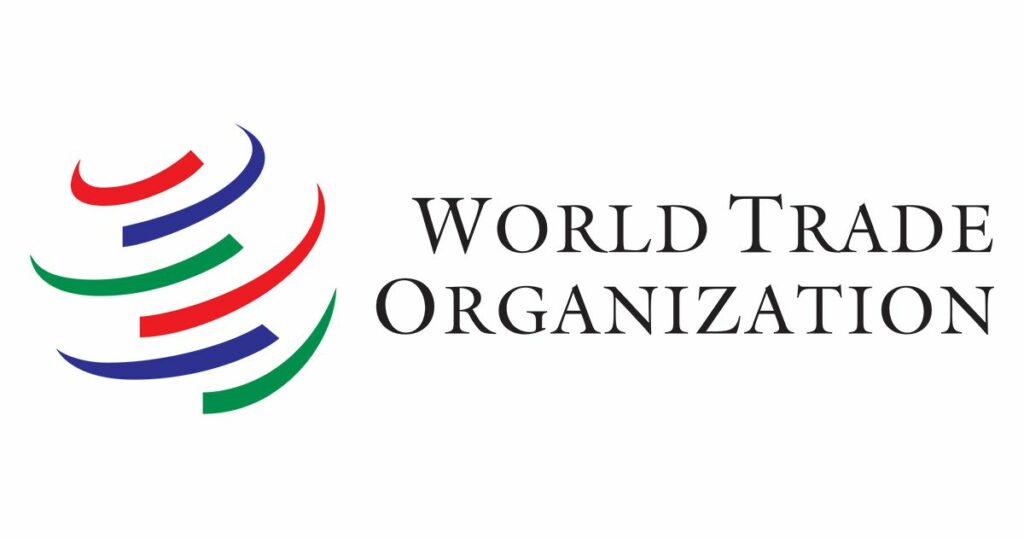The Future of WTO

From Current Affairs Notes for UPSC » Editorials & In-depths » This topic
IAS EXPRESS Vs UPSC Prelims 2024: 85+ questions reflected

Context
WTO public forum to focus on post-pandemic recovery
- The WTO’s 2022 Public Forum, to be held in September 2022, will look at how trade can contribute to post-pandemic economic recovery.
The World Trade Organization
- The World Trade Organization is an agency that promotes international commerce.
- In fact, it is the only global international organization that deals with the rule of trade between the nations.
- It was created way back in 1995 with an intention of boosting trade and economy, raising living standards for all people, pursuing sustainable development and helping developing members.
Contributions
- Ever since the WTO has made a unique and historic contribution to the world such as
- welcoming 88 new members
- expanding the world trade by three times
- cutting the tariff by half
- reaching the new agreements on trade facilitation
- the prohibition of export subsidy for agriculture
- resolving over 500 trade disputes
- above all helping hundreds of millions of people out of poverty.
- Even in the shadow of the COVID-19 pandemic, most WTO members hold on to the fundamental principles of the WTO. Of all the new measures adopted during the crisis, two-thirds of those measures are designed to facilitate trade instead of restricting trade.
Challenges
- Despite all its achievements, the spreading of unilateralism and protectionism are eroding the foundation of the WTO.
- Of late, the WTO has been busy settling trade disputes as the volume of the dispute is increasing every passing day.
- According to one of the WTO’s monitoring reports, between mid-October 2017 to mid-May 2018, the G20 countries included 39 new trade restrictions, affecting iron and steel, plastic and vehicles.
- This number doubles than during the previous year.
- Apart from that, the US has imposed tariffs on a number of countries, inviting retaliation, leading to a trade-war like situation.
WTO @ 25
- Even after its 25th year of inception, the WTO faces some of its biggest crisis.
- In fact, it has been in crisis for several years now with the WTO dispute settlement function being truncated, negotiations not delivering tangible results and an underused deliberation and monitoring function.
- The WTO lacks a common sense of purpose and it has not adapted to the changes that have shaped the global economy over the last decade such as
- the digital transformation
- the climate crisis
- the emergence of China as the largest trading nation.
- the COVID-19 has added another dimension to this crisis.
Need of the hour
A new response
- It requires a new response from the WTO and the membership of the WTO.
- First of all, in order for it to reassert its relevance and its effectiveness in ensuring
- the trade remains open and fair
- a stable and predictable global trading environment with the WTO at its centre is more essential than ever
WTO reforms
- Also, there is a raising need to put the WTO reform at centre stage in order to see how we can reinforce the effectiveness and the legitimacy of the WTO in all three functions
- Negotiation
- adjudication and monitoring
- deliberation function.
- This reform has to be built on the central tenets of the system that remains as valid today as they were in 1995.
Ambition+Realism
- It should combine ambition and realism since not all necessary changes can be achieved in one go.
- So we need to have a sequenced approach that allows the WTO to reap some successes early on.
Open and inclusive plurilateral agreements
- Also, we need to combine multilateral outcomes that take the form of open and inclusive plurilateral agreements where not all 164 members can forward immediately together at the same time.
Sustainable Development Goals
- The reforms need to enhance the trading system to our common sustainable development goals and facilitate the integration of those developing countries that are currently playing a marginal role in trading and investment flows.
- We need to look at a certain sequence of actions in this reform process such as focusing immediately on confidence building by showing responsiveness to the global concerns that contribute to the implementation of the sustainable development goals.
- This includes
- the fisheries negotiations
- responding to the pandemic through an initiative on trade and health that ensures that medicines, medical equipment, vaccines can flow freely and reach populations in need.
Environmental Agenda
- We need to advance the environmental agenda of WTO by facilitating trade in goods and services that mitigate climate change.
- We need to ensure transparency of measures taken to promote the climate transition.
The WTO dispute settlement
- We need to agree on the reforms of the WTO dispute settlement that preserve its binding nature and an independent but accountable appellate body.
- We also need to make decisive progress on the development of routes on issues that are critical for the 21st century such as digital trade and investment facilitation.
- We need to start a discussion on how WTO disciplines need to be strengthened to deal with the negative spillovers of state intervention in the economy.
Conclusion
- In short, the WTO has every reason to be proud of its achievements over the past 25 years building on the successes of its predecessor – the GATT.
- Today the world needs a well functioning WTO more than ever. That is, a strong, effective, inclusive and relevant WTO and in the interest of all its members – developed and developing.
Practice Question for Mains
- Today the world needs a well functioning WTO more than ever. Discuss. (250 Words, 15 Marks)
Referred Sources
If you like this post, please share your feedback in the comments section below so that we will upload more posts like this.

